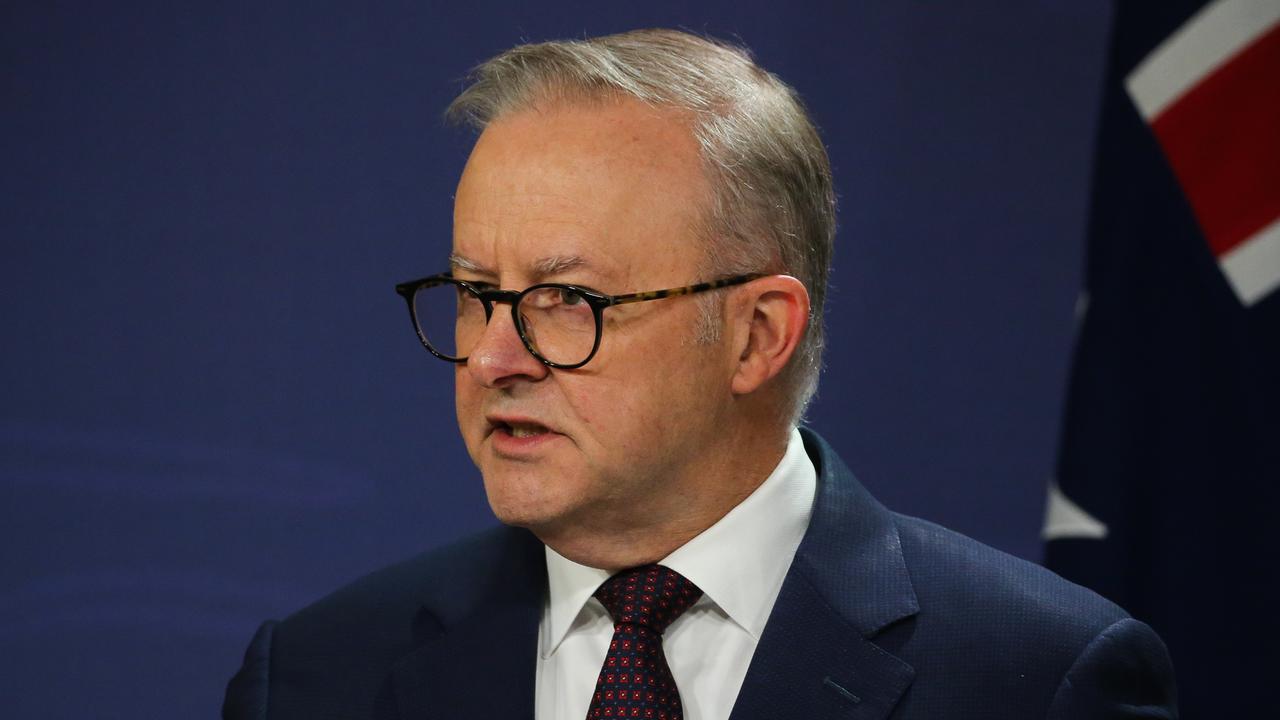Sticking to the planned rollout of the Albanese government’s stage three tax cuts risks further fuelling inflation, making the RBA’s job more difficult, and their delay should be considered, leading economists have cautioned.
Amid resurgent price pressures, Labor’s tax cuts which commence on July 1 will pump billions of dollars of additional spending into the economy by providing households with a cumulative $20bn over the next financial year.
Speaking on Wednesday, Impact Economics and Policy lead economist Angela Jackson said while the Albanese government’s fiscal policy to date had avoided adding to demand, the forthcoming stage three tax cuts posed a “real challenge” to inflation.
“Would you be calling for the stage three tax cuts right now if they weren’t in the budget? Absolutely, no way,” Dr Jackson told the National Press Club.
“I don’t think you’d find any economist who would be saying: ‘you know what we need right now is $20bn of tax cuts’.”
“They are a real problem for the government … those stage three tax cuts are undoubtedly going to add to aggregate demand and cause more issues and more headaches than even the Reserve Bank was hoping for.”
Designed to counter bracket creep, the tax cuts unveiled by the Albanese government in February overhauling a previously legislated Morrison-era tax package and are factored into the RBA’s forecasts.
While admitting that the tax cuts had already been legislated, Ms Jackson said there remained a case for their introduction to be deferred.
“In a perfect world, they would be delayed,” she said.
Instead, Dr Jackson called for more focused spending to assist those who had suffered from “really significant falls in their real incomes.”
“We do need very targeted support, it’s not the time for big stimulus payments … unfortunately for the government they have baked in these tax cuts,” she added.
“They’re not really appropriate for the times.”
Aruna Sathanapally, chief executive of centrist think tank The Grattan Institute agreed that the distribution of support needed to be more targeted, with the government “not necessarily shielding people” who could afford the recent rise in inflation and the effect of bracket creep.
“Those are part of your automatic stabilisers that are cooling down consumption amongst the people who can afford to pull back a little bit but not necessarily hitting those who can least afford it,” Dr Sathanapally.
Westpac Business Bank’s chief economist Besa Deda, also speaking at the National Press Club, said federal spending policy was “loosening slightly”.
“You’ve got the state through tax cuts, you’ve got the increased investment in housing, and you’ve got the increased investment in the green transition,” she said.
Following hotter-than-expected inflation figures for the March quarters, markets eliminated the chance that the RBA would lower interest rates this year, and ascribe approximately 20 per cent odds of a hike at the central bank’s August meeting.
Several analysts also expect the RBA will no longer be able to deliver a rate cut this year, with leading forecast Judo Bank chief economic adviser Warren Hogan even expecting “at least” two additional hikes from August, a move that would push the cash rate to 4.85 per cent.
Also concerned about the commencement of the tax package, Mr Hogan declared last week that the cuts came at the “worst possible time” and would at the very least delay rate cuts.
“A $20bn boost to household income when you’re trying to get spending down, when you’re operating an economy through its capacity, it really is the last thing you need,” he said.
Earlier on Wednesday, Treasurer Jim Chalmers described claims that the government had pivoted from fighting inflation to focusing on growth were a “pretty big over-reaction”, and argued progress on inflation had fallen as expected.
“Inflation has almost halved since we came to office. It moderated substantially in the quarter. In annual terms we’re still ahead of the MYEFO [mid-year] forecast for inflation so we need a bit of perspective here,” Dr Chalmers told ABC Radio.
The RBA next interest rate decision is scheduled for May 7, where the board is widely expected to keep the cash rate on hold at 4.35 per cent.
